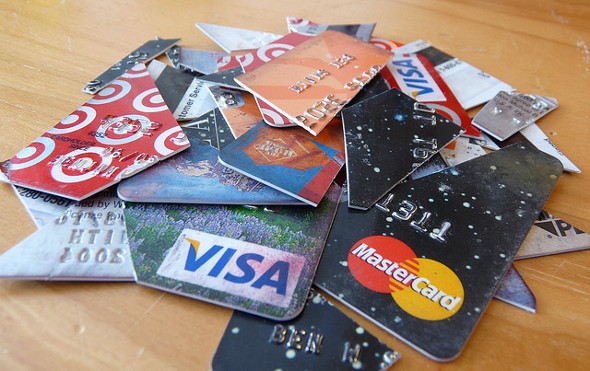Credit Card Default Can Result in Auto Repossession
A growing number of auto finance customers are at risk of having their cars repossessed should they default on their credit card payments. The worst part is that many of them are wholly and utterly unaware of this potential danger. After all, credit cards have traditionally been “unsecured debts,” meaning an asset does not secure them. However, there is a growing trend in which this is no longer the case. Your credit card could be secured by your car, truck, or SUV.
The process is called “cross-collateralization”, and it applies specifically to credit unions, which often employ the practice to reduce risk to all their members. While banks will use the technique of tying a credit card account to a customer’s checking or savings account, so that the bank can then take the overdue payment from those accounts in case of a default, credit unions have not gone that route. Instead, they are tying credit cards to a customer’s automobile.

Fleeing big bank fees, an unusually high number of new member accounts at credit unions in the past year means that many of these new customers may not be familiar with the policy. Consumer credit counselling services with a vested interest in the issue have found that in as much as 50% of the cases in which a customer’s car has been repossessed, the person was unaware of the “cross-collateralization” practice. Many of the others, although aware the practice as outlined in the fine print they signed for their credit card, had forgotten that getting their car repossessed was a possibility.
Credit unions can offer lower interest rates than other lenders as a result of the fact that the credit cards they offer can then be considered secure, rather than unsecured, debt. In event, the cross-collateralization is not limited to just vehicles; it can be applied to anything purchased with a personal loan or line of credit through the same financial institution like a credit card. Boats, RVs, even washing machines could theoretically be repossessed if used as collateral by a lending institution. Bankruptcy filings have also been made more difficult by the practice of cross-collateralization because it can be used as a way to force those filing for bankruptcy to pay off their credit card debts anyway.
Anyone considering borrowing money to pay for a vehicle is highly advised to read the fine print, and if there are terms like “cross-collateralization” that you don’t understand, don’t sign until you do. And above all, think twice before taking out a car loan from the same place that you have a credit card account with.